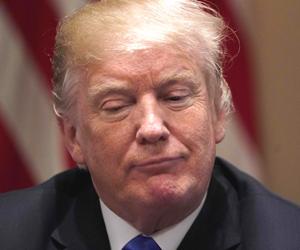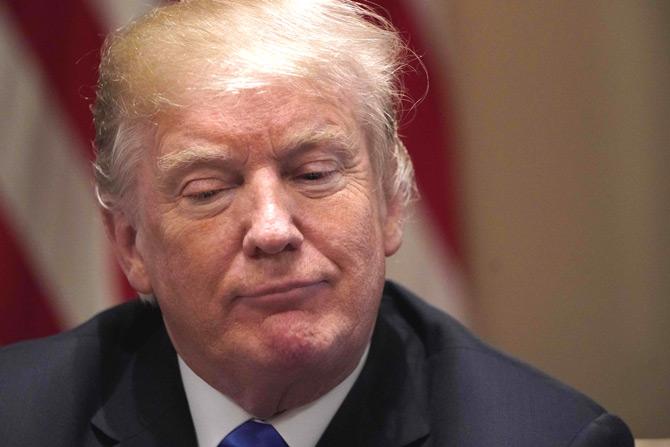Hours before Donald Trump signed orders imposing stiff new tariffs on imported steel and aluminium, Tesla CEO Elon Musk posted a series of tweets directed at the US President asking for "equal and fair rules for cars" when it comes to the US and Chin


Donald Trump
ADVERTISEMENT
Hours before Donald Trump signed orders imposing stiff new tariffs on imported steel and aluminium, Tesla CEO Elon Musk posted a series of tweets directed at the US President asking for "equal and fair rules for cars" when it comes to the US and China.
Musk said that the high tariffs on cars imported to China, as well as manufacturing rules in the Asian country, have made things "very difficult" for the company.
Musk spoke out against two things.
First, he said that the US places only a 2.5 per cent tariff on cars imported to the US from China, while China places a 25 per cent tariff on US imports.
He also noted that the Chinese government forces foreign automakers that want to manufacture cars in the country to partner with a local car company.
According to The Verge, Musk wanted Trump to pressurise China to change its stance on these issues.
"It is better if all countries lower tariffs," he wrote.
But when Trump read Musk's tweets during a press event, he said that "at some point", the President was likely to enforce what he called a "reciprocal or mirror tax", where he would match the tariffs China has put on US imports.
Tesla has been exporting cars to China and accounts for nearly nine per cent of the electric vehicles (EV) market in the country.
On Twitter, Musk complained this was unfair since there are "five 100 (per cent) China-owned EV auto companies in the US".
"I am against import duties in general, but the current rules make things very difficult. It's like competing in an Olympic race wearing lead shoes," Musk wrote.
"Just want a fair outcome, ideally where tariffs/rules are equally moderate. Nothing more. Hope this does not seem unreasonable," he added.
Later on Thursday, Trump defied opposition from the Republican party and protests from global allies as he signed orders imposing stiff and sweeping new tariffs on imported steel (25 per cent) and aluminium (10 per cent).
Flanked by a handful of steel and aluminium workers, Trump presented the move as a way to rebuild vital industries decimated by foreign competition.
The US is the largest steel importer in the world and the order could hit South Korea, China, Japan, Germany, Turkey and Brazil the hardest.
Catch up on all the latest Crime, National, International and Hatke news here. Also download the new mid-day Android and iOS apps to get latest updates
 Subscribe today by clicking the link and stay updated with the latest news!" Click here!
Subscribe today by clicking the link and stay updated with the latest news!" Click here!






